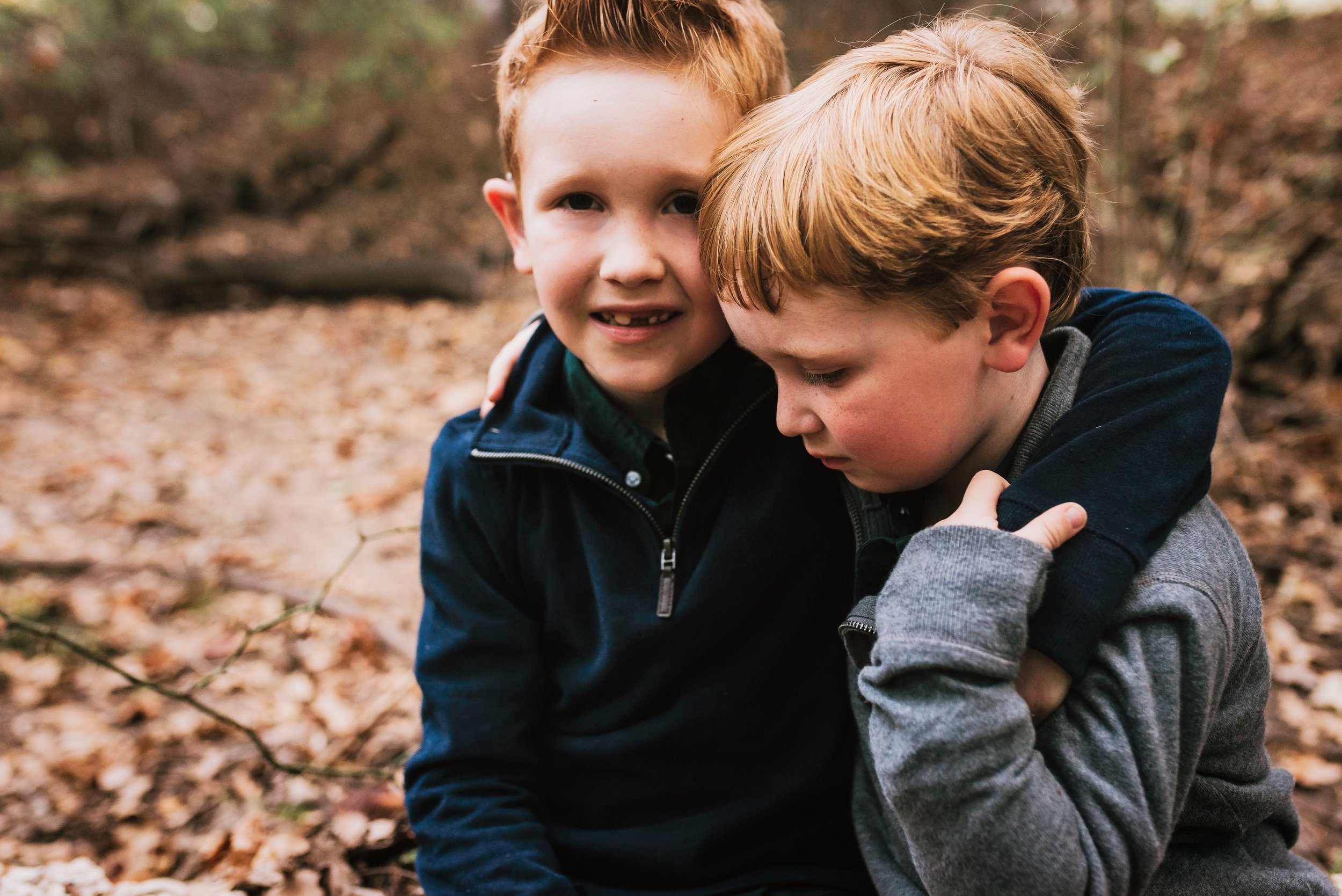Raising critical thinkers
Since the beginning of humanity, shocking, nauseating, confusing, devastating, chaotic things have been swirling around us. I’ve been tempted to believe that the virus, impeachment, race riots, school closures, economic devastation (not to mention regular, old everyday hardship) are about as sad and hopeless as this world has been. Thankfully (and scarily) a three-second look at history tells me this is false, and now more than ever before in my kids’ lives, my responsibility to guard, shape, and shepherd their minds feels heavy.
Friends, we can’t ignore the fact that our kids are living through the same reality we are right now, with the same confused, scared, and potentially hopeless feeling that many of us are struggling to breathe through. The storm isn’t going away anytime soon and I want more than anything for my kids to emerge strong, feeling secure in their ability to navigate whatever comes next, and genuinely hopeful for their futures as individuals as well as our future as a nation. WHAT could our generation of kids be capable of if they each emerged from the storm as critical thinkers?
Okay, reality check, it is easy to sit behind a computer and get super excited for what the next generation could be capable of, could do differently than us. Much easier than actually taking steps to make it happen. You are likely asking, WHY should I be doing this- isn’t it more loving and responsible to “keep them little” as long as possible and shield all the bad news from them? WHAT exactly should I be telling them? HOW can I teach my kids to think critically- I’m not sure I even know how to mentally sort out all the chaotic events and politics.
If we are honest, the school system in America slants much heavier toward teaching our kids what to think rather than how to think. Memorize facts, accept this theory, buy into this narrative or perspective. Can you remember the last time you heard students (in public school) encouraged to question the teacher, question the source, or think of better solutions, other than the one already offered by the teacher? I can’t either, but I can, unfortunately, think of many incidents in the news, as well as experiences of my own children, where questioning status quo landed them in a good heap of trouble with school admin.
The reasons we, as a society, don’t keep political, foreign events and policy, religious, and current event conversations alive with our kids are many, but they all boil down to fear and discomfort. It is easy to believe the world is too scary for kids to know what is going on. They will either be afraid or confused. What will our friends think if my kids are questioning what they believe? How do I teach them anything of substance without them zoning out from a lengthy lecture? More importantly, how do I teach them anything of substance when I’m not sure I understand everything going on in our world. I don’t even know what I think!
I have good news: you can throw your fear of forcing the kids to grow up too early out the back door. It has been my experience, when a child has a basic understanding of they hear tidbits of on the news, radio, in grown-up conversation, etc., the more secure they feel. Our oldest has always been the most curious about what is going on in the world around us. As little as the age of four, whenever I turned off talk radio mid-segment he would immediately ask me with a fearful tone, “Why did you do that? Is something bad happening?”
A child’s imagination has a tendency to fill in the gaps, the mysterious things it seems no one is telling them about, with stories much scarier than the truth. That being said, some events, ideas, etc. are ugly and chaotic and even us grown-ups are a bit afraid. Riots, war, terrorist events, domestic abuse, business fraud, ugly political smear campaigns, human trafficking...it is almost impossible to listen to more than 5 minutes of news without very negative news. I’m building trust with my kids by beating everyone else to the punch with an explanation. Reassuring them that we will always tell them the truth the best we can, they are learning their parents won’t brush them off, evade their questions with half-truths or “white lies”, or ever think less of them for asking. Do we filter our answers based on age and even the personality of each child? Absolutely! Some of our kids are more fearful than others, some are more interested and want a longer explanation, and some have the tendency to obsess over information if we let the conversation go on too long.
Our open-door/open-book approach to our kids’ questions doesn’t mean we abandon wisdom or our duty to guard their hearts and minds. It means, for absolutely as long as possible, we will be trusted advisors/teachers/guides through this crazy world we live in. Also, we would always prefer it was our voice that rung loudest in their heart and mind. Unfortunately, the fantasy of power to shield our kids’ hearts and minds from all the darkness that surrounds us is just that- fantasy. They will find out about all these things- and what a gift it is to all of us if the words can come from my lips.
Guiding Conversations
Alright, we are all sufficiently convinced that leaning into these hard conversations matters, but practically speaking, what are we supposed to say? As much as I wish I could upload conviction, critical thinking, and wisdom into their sweet little brains, time and practice are the only way these gems are discovered.
My four favorite approaches:
Get Curious. When it comes to our great, big world, there is genuinely so much to be curious about! Why do you think that is a tradition in China? Would you feel differently about the new law if you lived (in a different place, socioeconomic status, etc.)? Who do you think would be helped if the new amendment were to be passed? Who do you think would be hurt? How did you feel when you heard that on the radio? If you were President, what would you decide? Why do you think those people are choosing to riot/protest/etc.? Why do you think Denver’s governor is making different choices than Texas’ governor? Do you think businesses should be allowed to do that? What might be some reasons for someone to be on welfare or homeless? Do you think this news site has any bias that would influence their opinion?
Let your kids guide the conversation, not the other way around. Admittedly this is more applicable to older kids, or younger ones that have had some practice starting to think critically. With younger kids (6 and below), getting curious with very basic questions while waiting for their questions is a great way to guide the conversation. Figure out what it is they are really asking because they probably are not asking for an hour dissertation on checks and balances of the U.S. government. Knowing what they are really asking also helps us gauge what level of information they are ready for. I almost learned this lesson the hard way when Owen was 5. He came home from junior kindergarten and asked me what a period was. Blood quickly drained from my face as I prepared to answer the question, but by the grace of sweet baby Jesus, I first asked, “What do you mean?” He replied, “Like after you write words.” A punctuation period, NOT an Aunt Flo. Good thing I clarified!
Push back on their statements that are flippant, short-sighted, or said without any back-up. Question their logic, their reasoning, the credibility of their reasoning, the next steps, consideration of alternatives, etc. I often remind them how important it is that I teach them to be independent thinkers rather than argue, call them out, or prove them wrong- someone who can formulate their own opinion and then have the courage to respectfully have a conversation. This is also great practice for them receiving criticism throughout their life; to receive it in a constructive manner rather than feeling like an attacked victim.
Practice respectful, thoughtful, logical debate. Knowing how to engage in conversations about topics that easily offend, ask questions, formulate an opinion, and then critically defend your position is ABSOLUTELY a learned skill. Mock debates are the perfect way to practice these skills as well as gain the confidence to speak up in a setting (where appropriate, I should add). On a long car ride or over a family meal, we love to give the kids a topic and then assign positions to debate from. We always assign the position we know they wouldn’t naturally choose as to increase the opportunity to really think through a situation using logic, as well as prove to themselves that the opposing side always has at least some valid points as well. Can you imagine if we were all trained to examine both sides, looking for ways they might be right, rather than solely ways they are wrong? Sometimes we will take a pertinent topic in the news (most recently we gave the question, “Should schools open back up or should students learn virtually?”). Most of the time, I love to give kind of silly, fun topics to keep them interested like, “Should our city have more playgrounds?” or “Is peanut butter and jelly or turkey and cheese the better sandwich?”. I will often jump in here to guide them along- the kids’ hearing what my thought process is has been very helpful in them really learning some new skills in this area.
Please know the awkward, stressful feelings will lessen with practice, for both of you. You will get more used to initiating conversations and answering questions that come up. They will get more used to thinking about all these topics that maybe they never really gave any mind space to before. The more conversations that are had, the more their wonder, curiosity, and convictions will develop. I want to encourage you to stick with it! You just might surprise yourself with how much you are learning along the way!
Our hearts and minds feel so full navigating the bumpy twists and turns in this world, but the hope for leaving a legacy of a more thoughtful, logical, critical thinking generation keeps me moving. It’s what Jesus has designed us for; we were born for such a time as this.

